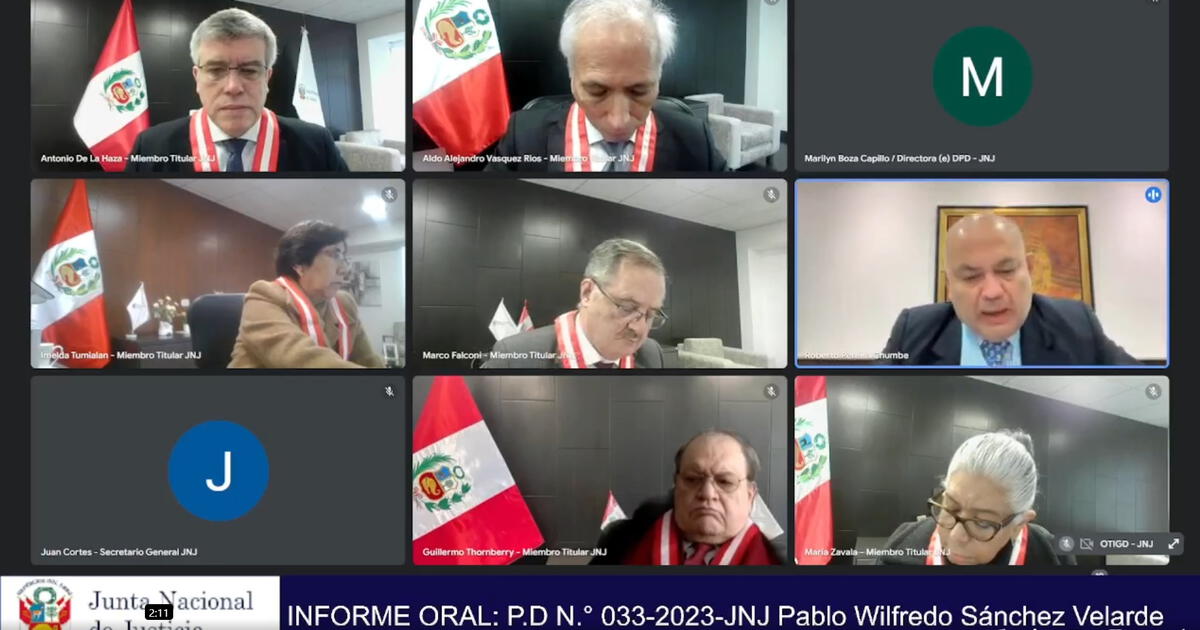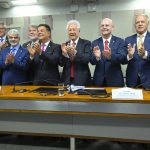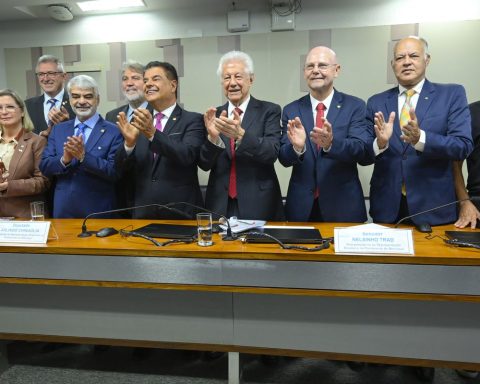If Congress can do it, so can the National Justice Board. The Supreme Prosecutor and former Attorney General, Pablo Sánchez Velarde, could be sanctioned with a four-month suspension because the JNJ has decided to interpret in its own way an article of the Constitution on remuneration in the State.
The JNJ accuses Pablo Sánchez of negligence and non-deliberate imprudence in the interpretation of a norm. However, in order to sanction him, it resorts to its own interpretation of said legal norm. A pulse of power that seems to say: you mistreat, I mistreat, he mistreats.
Legal framework
Congress of the republic
Let’s see. Article 40 of the 1993 Constitution says: “No public official or servant may hold more than one paid public job or position, with the exception of one more for teaching purposes.”
In developing this Constitutional mandate, Article 3 of Law No. 28175, Public Employment Framework Law from the year 2005 I specify: “No public employee may receive from the State more than one remuneration, compensation, emolument or any type of income.. The only exceptions are the teaching function and the receipt of allowances for participation in one (1) of the boards of directors of public entities or companies.”.
Meanwhile, Article 56 of Legislative Decree No. 276 – Law on the Basics of the Administrative Career and Remuneration of the Public Sector – prescribes that: “Diets for participation and attendance at boards of directors or equivalent bodies of companies and institutions They are not remunerative in nature.”
The meaning of “y”
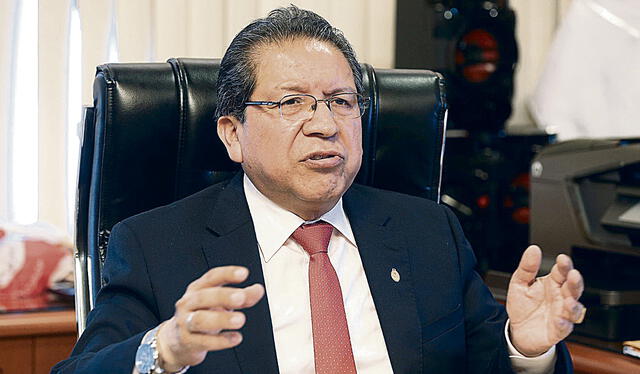
Pablo Sánchez Velarde, titular supreme prosecutor
It should be noted that the JNJ establishes that this disciplinary process is not about an act of corruption or abuse of power, but about the meaning of the “and”.
Between the years 2015 until June 2021, Pablo Sanchez Velarde and most or almost all of the State considered that this “and” was copulative, that is, that it allowed both alternatives.
For this reason, Pablo Sánchez and other judges and prosecutors of the Judiciary and the Public Prosecutor’s Office received a salary as a magistrate, a salary for teaching at a public university and the non-remunerated allowances for participating in the sessions of the Board of Directors of the Academy of the Judiciary.
In 2015, the Ministry of Economy and Finance validated this interpretationthrough a supreme decree and included in the General Budget of the Republic the funds necessary for the payment of these allowances, without any observation.
The authentic meaning
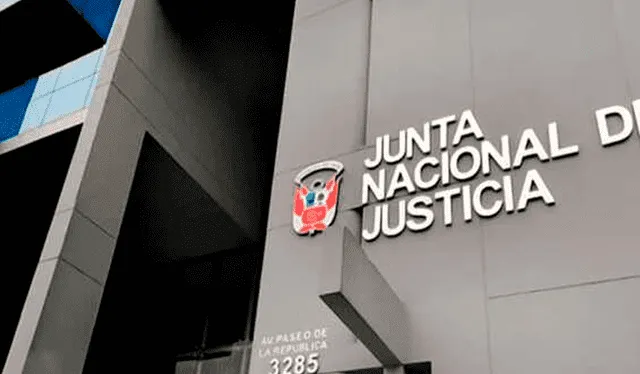
National Board of Justice
The situation would have started to change in 2018. That year, in a work report, the National Civil Service Authority (Serve) He interpreted that, in reality, the authentic meaning of the law on exceptions was that the “and” should be read with the meaning of an “or”.
That is to say, civil servants could only receive one other salary from the State: teaching activity or allowances on a board of directors. According to Servir, it was one alternative or anotherServir’s position was left to academic debate or, in general, was ignored. It was not a law, nor does it have the legal value of a law.
The text of Article 40 of the Constitution has not been modified. On the contrary, more exceptions have been added, following a ruling by the Constitutional Court in March 2022: and retirement pension.
“What the Constitution prohibits is the double perception of remuneration, except for teacher remuneration, but not the double perception of income, that is, the simultaneous perception of remuneration and pension.“, established the constitutional Court with the inclusive meaning of the “and”. The JNJ interprets that this sentence does not apply to the case of Sánchez Velarde.
Public savings
In June 2021, For a budgetary and public savings issue, the MEF decided to accept the interpretation of Servir and established that the authentic interpretation of the aforementioned rule is that the “and” must be read with the meaning of the “or” in disjunctive and therefore did not allocate more budget for the payment of allowances at the Academy of the Judiciary.
Pablo Sánchez Velarde stopped receiving the allowances he received at the Academy of the Judiciary and the matter was forgotten. Criminal and labor regulations are not retroactive, unless they are positive for the citizen and/or worker..
Disciplinary process
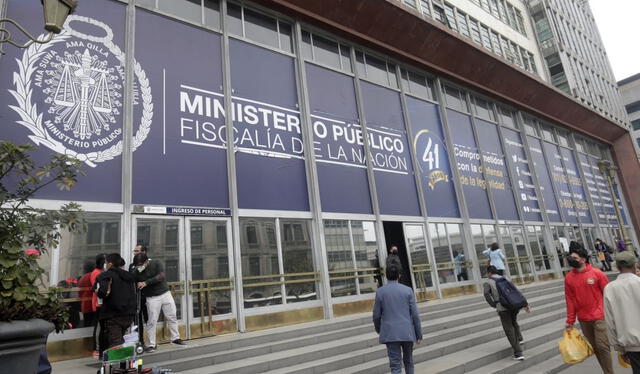
The decision of the JNJ will affect the Public Ministry
Well, the National Justice Board decided to open a disciplinary process against Pablo Sánchez for the diets that he received from September 2020 to June 2021, giving a retroactive scope to the latest provision of the MEF.
The JNJ points out that Sánchez Velarde had negligent and reckless conduct and that, although he did not act with malice, he did so, with little reflection and recklessnessby allowing him to be paid and charged for his allowances.
“To this extent, even though the conjunction “and” was used in the legislative formula, The interpretation most in line with the constitutional text and purpose is that what the legislator has established are two distinct and mutually exclusive cases of exception. regarding the prohibition of double perception of State income, and not an additive exception that allows its simultaneous application to admit triple perception,” the JNJ ruled.
Disclaimers
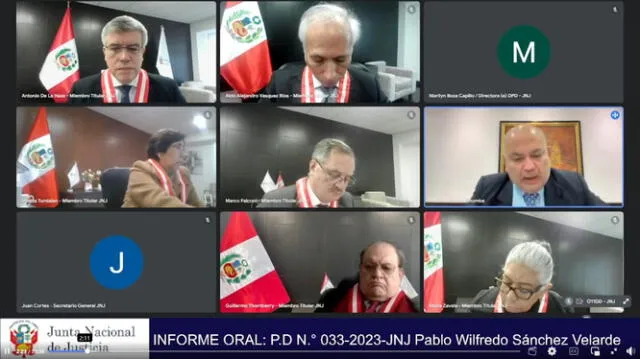
The National Board of Justice left the case to a vote
This Thursday, July 18, the National Justice Board heard from the attorney for the Supreme Prosecutor, Roberto Pereyrabefore making a decision. “You cannot interpret the literal meaning of a law to sanction a public official, what must happen is the law must be changed,” argued the lawyer.
He also points out that the purpose of the law is to prevent a public official from monopolising more than one job in the State, which is not the case with Pablo Sánchez. He did not hold a position in the Academy of the Judiciary, but was appointed by the Board of Supreme Prosecutors.
Pereyra also questioned the retroactive application of the MEF resolution that initiated the disciplinary process, in a matter that dates back to 2015 without any questions having been raised until the intervention of the JNJ.
Another factor to take into account is that the JNJ does not explain why it applies the maximum sanction of suspension allowed, four months, if it denies intent.
After hearing from the lawyer, the councilors left the case ready to cast their vote.
Contagion
Beyond the specific case, this disciplinary process is paradoxical in that the JNJ has the power to interpret a constitutional norm, to read what the Constituent Congress wanted to legislate, to go beyond the express text of the Law. Something that the councilors criticize and deny that Congress can do..
In the background, It is the same thing that the Congress of the Republic did when it tried to sanction the councilors Inés Tello and Aldo Vásquez to the interpret two legal norms, one that states that every official ceases to serve upon reaching 75 years of age and another that states that every member of the JNJ must serve a five-year term.
Furthermore, both authentic interpretations have consequences for the functioning of key State institutions. The interpretation of Congress affected the quorum of the JNJ. The interpretation that the JNJ intends will affect the quorum of the Board of Supreme Prosecutors.
Authentic interpretations are contagious. It should be noted that the majority that controls Congress also wants Pablo Sánchez’s head. The JNJ gives it to them by authentic interpretation.
